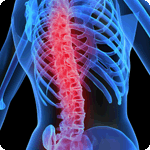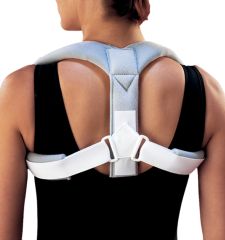Upper Back Pain
Causes of Upper Back Pain
Upper back pain can be caused by an event, such as:
- poor posture while standing or sitting
- lifting heavy objects
- improper bending
- sports accidents, especially from direct blows or tackling
- car accidents
- excessive weight
To properly diagnose the cause of upper back pain, your doctor will perform a physical exam. Images may be taken, such as with an X-ray or MRI.
Symptoms of Upper Back Pain
A person may experience upper back pain in a number of different ways. This pain may occur when:
- you take a deep breath
- during movement
- when your back is touched
- when the neck is bent forward or the shoulders are moved
WHAT IS THE TREATMENT?
As with any injury, your doctor will be the best source of advice on the appropriate treatment method for your situation. The doctor will recommend the best treatment based on the cause of your back pain. General pain management for mild upper back pain can be done at home starting with hot and cold therapy. The heat helps to relax the muscles while the cold helps numb away pain and reduce swelling. You may want to rest from activities that affect the upper back for a couple days, but try to get back to normal activity as soon as possible so that stiffness does not settle in.
As with many joint injuries, physical therapy will normally be recommended. Your therapist will show you exercises to strengthen the upper back muscles. This helps support your upper back more efficiently, and usually helps reduce pain. Your therapist will also show you stretches that increase flexibility in the upper back, which will also be helpful during recovery.
Anti-inflammatory medications such as ibuprofen and aspirin may also reduce upper back pain. They may be especially beneficial because headaches are sometimes seen along with upper back pain. Your doctor may also prescribe other medications that help relieve pain. If conservative treatments don't work and your upper back pain persists, consult your doctor.
SUPPORT & PROTECTION FOR THE UPPER BACK
View all Upper Back Braces and Posture Supports





 The human back is designed to give us strength, and it protects our spinal column and nerves. The upper back, also called the thoracic back, provides stability and is less mobile than the lower back. Because of this,
The human back is designed to give us strength, and it protects our spinal column and nerves. The upper back, also called the thoracic back, provides stability and is less mobile than the lower back. Because of this, 
